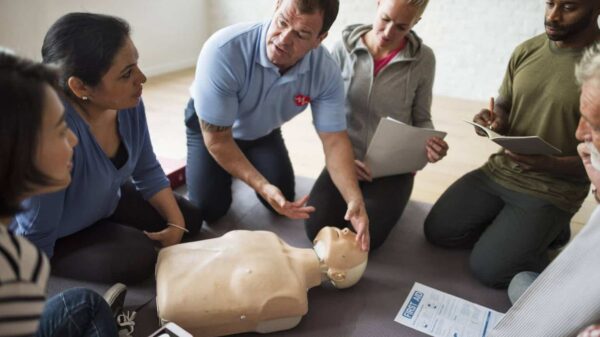The COVID-19 virus changed what many families thought they knew about education. They have gained intimate experience with teaching methods. Parents know more about what their children are learning.
Many families have become more curious about their options for educating their children. Sending a child to school is an everyday responsibility. Yet, changes to what has always been normal have opened pathways to explore the best schools for a child’s specific needs.
Deciding where to send your child to school is a big decision. You can learn more about the different types of schools by clicking here.
Public or Private?
There are differences between how public and private schools are funded. In addition, there are differences in pedagogical methods and the way they are monitored by the state and federal government.
Public Schools
There are many different types of schools that are open to the public. Local, state, and federal governments fund public schools. The traditional public school employs a superintendent, educational board, teachers, and service staff.
Public schools follow regulations set by the state and federal government. All students must receive an education that leads to success in adulthood.
Currently, the Every Student Succeeds Act (ESSA) is the federal law that reports the progress of public students in grades K-12. Currently, the Every Student Succeeds Act (ESSA) is the Federal law that publicly reports the progress of public students in grades K-12.
Private Schools
Private schools are not funded by governments. Parents pay tuition and some funding may come from private donations. Private schools are for-profit or non-profit. Parents pay tuition and some funding may come from private donations. Private schools can be operated for profit or as non-profit.
Private schools are not held to the same federal regulations as public schools. They can provide a curriculum based on specific skills training, religion, and/or educational philosophy.
Planning Your Child’s Education
Finding the best school for your child requires planning. Give thought and discussion about the personal goals you have for your child’s future. There are many different types of schools. Your best choice is an informed decision about what is most important to you and your child.
STEM
An academic program based on science, technology, engineering, and mathematics is STEM. The United States Department of Education requires its public schools to provide curriculum based on STEM for college readiness.
Four areas are at the core of the academic program. Reading, writing, and social studies are incorporated within STEM topics and experiences.
Special Education
All public schools must provide the least restrictive environment and access to education for all students with special needs. Students with needs beyond a general curriculum fall under the law IDEA and include:
- Autism
- Hearing Impairment
- Visual Impairment
- Deaf and Blindness
- Deaf
- Emotional Disturbance
- Intellectual Disability
- Multiple Disabilities
- Orthopedic Impairment
- Other Health Impairment
- Specific Learning Disability
- Speech and/or Language Disability
- Traumatic Brain Injury.
Intellectually gifted students are also served under special education in public schools.
The Arts
Many public schools still offer instruction in the arts. Federal guidelines pressure traditional public schools to prove academic progress. As a result, they limit these programs.
The arts are visual artistic expression, music, theater, and creative writing.
Leadership
In the upper grades, leadership education focuses on providing opportunities and skills training in decision-making and management. Intensive study of the history of governments and corporations is also included in the curriculum. Students study sociology and psychology in communication lessons.
For young children, leadership education begins with a focus on learning by discovery and determining one’s strengths. As a child progresses through the elementary years, the curriculum begins to focus on learning to share ideas.
Types of Schools
You have determined the areas of development that are the most important for your child. Now, you are better equipped to research how different kinds of schools can best suit your needs.
Charter
A charter school is also a public school and is tuition-free. They have more freedom in developing a curriculum and demonstrating the success of their students.
Many charter schools employ certified teachers who have also been experts in their field of instruction. They follow national standards for academic success in STEM instruction.
For example, Royal Public Schools is a tuition-free public charter school that offers both STEM and the arts as part of its core curriculum. Pedagogical practices focus on project-based learning with an emphasis on critical thinking skills. Extracurricular activities at this school include entrepreneurship learning experiences.
Magnet
Magnet schools are also part of the public school sector and often receive grants from The United States Department of Education. The difference between a magnet and a charter school is the curriculum offered.
Many magnet schools offer education based on a philosophy of teaching, such as constructivism. An example may include magnet schools that focus on Montessori teaching methods.
Aside from educational philosophy, a magnet school will often have a theme of study. Examples include robotics, foreign languages, the arts, and specific career exploration.
Special Education
Private schools that focus on the needs of students with disabilities offer more than a traditional public school can provide. They employ certified special education teachers, medical staff, and therapists.
The curriculum provided in a private setting is personalized beyond standard IEP and 504 plans.
Religious
Schools that offer a religious-based education are private. They are monitored by a local church or regional institution. They offer academic education with the core theme based on the religious perspective of founding members.
Funding comes from tuition. Funding from educational grants and donations from religious members make tuition more affordable.
What Are the Best Schools Near Me?
Finding a school that is best for the needs and goals of your child does not have to be difficult. There are many different types of schools that are embracing the freedom to teach with specialization.
Interview schools in your area and ask about the core curriculum. Visit our blog often for more information on planning your families’ future.






























































